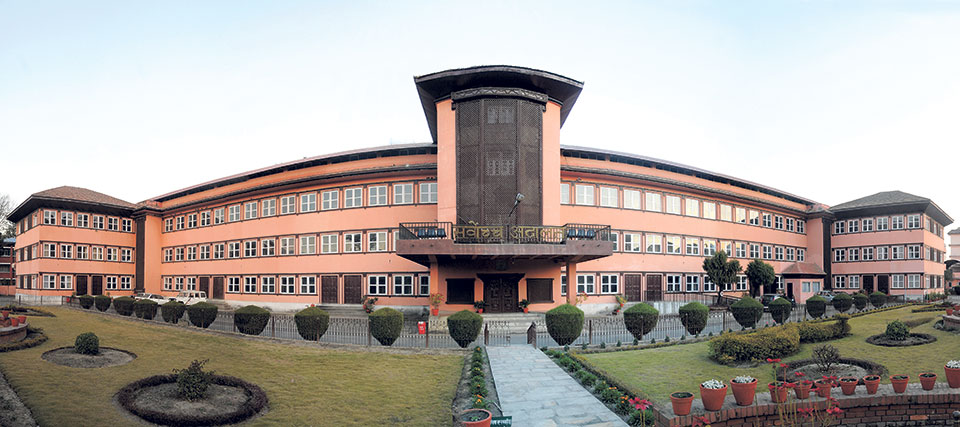The government's campaign to distribute national identity cards, launched with much fanfare, is mired in confusion and inefficiency, leaving citizens uncertain about when these crucial documents will reach their hands. The integration of the driver's license with the national identity card has been announced, but this decision has not inspired confidence among service seekers. Despite years of waiting, a large number of citizens still lack their national identity cards, and over 210,000 drivers eligible for licenses remain without them. This situation underscores the broader problem of bureaucratic delays and inefficiencies that plague Nepal's public services. According to the Department of National ID and Civil Registration, 14.8 million people have filled out forms to obtain a national identity card, yet only 9 million have received them. The more essential these cards become, the higher the demand will rise. For instance, acquiring a new passport is impossible without a national identity card, and from July, possessing one has been mandatory to receive social security allowances in various districts. Announcing the compulsory nature of the national identity card while failing to issue them effectively highlights the government's incompetence. We believe that forcing citizens to navigate new bureaucratic hurdles without the necessary documentation is both unjust and impractical.
The government's plan to include additional personal information, such as insurance, business, and company details, in the national identity card raises further concerns. The public remains skeptical about whether this card will streamline interactions with government offices. There are still instances where government employees do not accept driver's licenses for certain tasks requiring citizenship verification. If citizens must carry multiple documents regardless, the national identity card's purpose becomes questionable. The government must convincingly demonstrate that the national identity card will facilitate, rather than hinder, access to services. The government's vision for the national identity card includes preventing duplication, collecting personal details in an integrated form, and ensuring efficient service provision. However, the people's past experiences with administrative inefficiencies make them wary. The government needs to earn the public's trust by proving that the national identity card offers genuine convenience. Only then will those who have not yet applied for the card feel compelled to do so.
Hearing at SC today on petition filed against govt decision to...

Nepal's ad hoc approach to public projects is evident in the national identity card issue. There is a lack of long-term planning and coordination, reminiscent of how road construction often ignores necessary infrastructure like sewage, drinking water, and electricity. If integrating the driver's license with the national identity card was planned, why continue the separate issuance of driver's licenses? A more straightforward solution would have been to issue a temporary document for driving qualifications while incorporating these details into the national identity card. The current scenario, where the government cannot efficiently issue either driver's licenses or national identity cards, is absurd. The government mandates citizens to follow various procedures but fails to provide the necessary services promptly. This is not to undermine the value of the national identity card. Its potential benefits are clear, but its efficacy must be proven to the general public first.
To address these issues, the government must take several steps. Firstly, the national identity card's validity and benefits must be demonstrated effectively to the public. Secondly, the card should be trusted to reduce bureaucratic harassment in government offices. Thirdly, those who have applied for the card should receive it promptly and efficiently. The current mandatory requirement for social security allowances has led to people queuing overnight to fill out forms and take photographs, showcasing the carelessness in the distribution process. Furthermore, those who have already applied for the card but have not received it should not be forced to navigate additional bureaucratic challenges. The government should ensure that all citizens have access to the national identity card before making it a prerequisite for various services. Additionally, the technology required to verify the card's details must be in place to prevent further inconvenience to the public. Only then can the card fulfill its intended purpose of streamlining access to services and reducing bureaucratic burdens. Without these improvements, the public will continue to suffer from the inefficiencies and incompetence of the government and its employees. We urge the government authorities concerned to take decisive measures and make national identity cards genuinely accessible to all citizens.






































